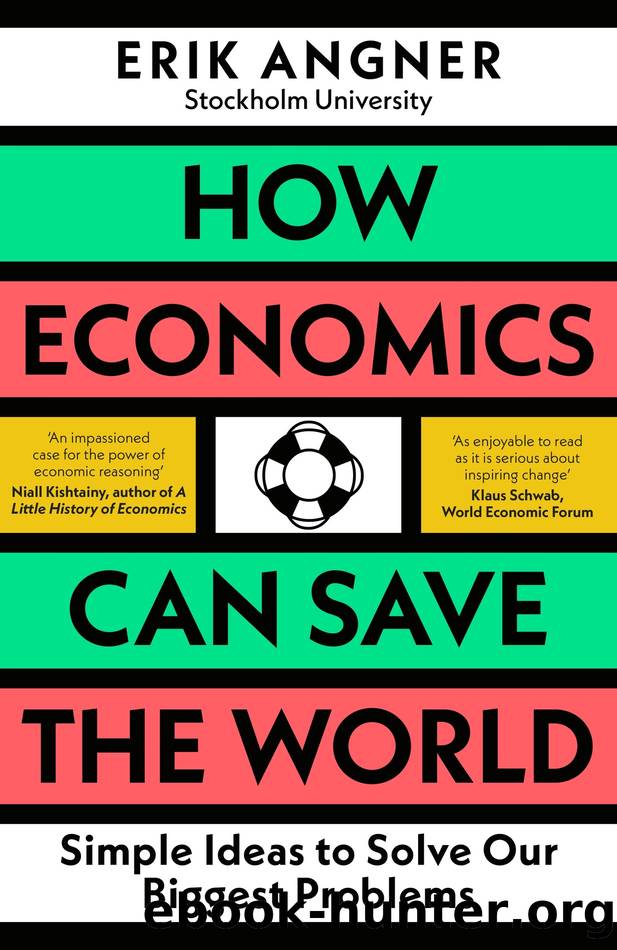How Economics Can Save the World by Erik Angner

Author:Erik Angner [Angner, Erik]
Language: eng
Format: epub
ISBN: 9780241502723
Publisher: Penguin Books Ltd
Published: 2022-12-08T00:00:00+00:00
What makes overconfidence particularly potent is that itâs a âforce multiplierâ, as they say in the military â and not in a good way. A force multiplier is something that gives soldiers an extra edge when it counts. Overconfidence gives extra bite to all the other biases weâre subject to. Being wrong or incapable doesnât need to be so bad in and of itself. But being wrong or incapable and also overconfident can be deadly. Literally.
The 1980s US TV show Sledge Hammer! featured an unstable police officer who never saw a problem he didnât try to fix with brute force.5 His most famous line was: âTrust me, I know what Iâm doing.â Whenever uttered, things would go horribly wrong. The problem wasnât just that Detective Hammer was incapable of performing tasks such as defusing nuclear bombs. That hardly made him unique. The problem was his confidence that he could defuse nuclear bombs. His overconfidence made him think that he knew what he was doing when he did not. It was the gap between competence and confidence that caused all his problems â and the comedy and drama. We all know some Hammers. Worse, weâre all Hammers ourselves â at least some of the time.
Youâll be relieved to learn, then, that economics can help solve the problem of overconfidence. Behavioural economists have identified three strategies that reduce overconfidence in ourselves and others. These strategies can also be used to build overconfidence-proof teams. First: we can confront our beliefs with evidence thatâs regular, prompt, and unambiguous. Feedback reminding us how often weâre wrong seems to help. Thatâs especially true if the evidence is hard to explain away. Second: we can force ourselves and others to reflect on reasons we might be wrong. This is hard. Weâre much better at producing reasons why we are right. But forcing ourselves to think through the various scenarios in which we turn out to be wrong seems to help us realize that the probabilities are not as remote as they might seem at first. Third: we can change the environment in which decisions are made to make it less conducive to overconfidence.
Epistemic humility is an intellectual virtue. Itâs grounded in the realization that our knowledge is always provisional and incomplete â and that it might require revision in light of new evidence. Carl Hempel was one of the greatest philosophers of science of the twentieth century. People who knew him tell me he was never prejudiced in favour of a view just because it happened to be his own. Thatâs epistemic humility. Itâs a good thing. Avoiding overconfidence is a matter of epistemic humility. A lack of epistemic humility is a vice. Thatâs a bad thing. It can cause massive damage both in our private lives and in public policy.
This chapter describes the economic approach to epistemic humility. It offers advice about how to attain it. The ancient Greek philosopher Aristotle thought virtue was the mean between excess and deficiency.6 Economists agree. Epistemic humility is to be found between over- and underconfidence.
Download
This site does not store any files on its server. We only index and link to content provided by other sites. Please contact the content providers to delete copyright contents if any and email us, we'll remove relevant links or contents immediately.
| Accounting | Economics |
| Exports & Imports | Foreign Exchange |
| Global Marketing | Globalization |
| Islamic Banking & Finance |
The Meaning of the Library by unknow(2565)
Six Billion Shoppers by Porter Erisman(2296)
Why Nations Fail: The Origins of Power, Prosperity, and Poverty by Daron Acemoglu & James Robinson(2288)
No Time to Say Goodbye(2112)
Red Notice by Bill Browder(2070)
The Economist [T6, 22 Thg9 2017] by The Economist(1924)
Currency Trading For Dummies by Brian Dolan(1921)
Thank You for Being Late by Thomas L. Friedman(1766)
Bitcoin: The Ultimate Guide to the World of Bitcoin, Bitcoin Mining, Bitcoin Investing, Blockchain Technology, Cryptocurrency (2nd Edition) by Ikuya Takashima(1694)
Amazon FBA: Amazon FBA Blackbook: Everything You Need To Know to Start Your Amazon Business Empire (Amazon Empire, FBA Mastery) by John Fisher(1559)
Coffee: From Bean to Barista by Robert W. Thurston(1542)
The Future Is Asian by Parag Khanna(1480)
The Great Economists by Linda Yueh(1453)
How Money Got Free: Bitcoin and the Fight for the Future of Finance by Brian Patrick Eha(1421)
Grave New World by Stephen D. King(1418)
Pocket World in Figures 2018 by The Economist(1414)
Capitalism Without Capital: The Rise of the Intangible Economy by Jonathan Haskel(1394)
The Sex Business by Economist(1382)
Cultural Intelligence by David C. Thomas(1286)
